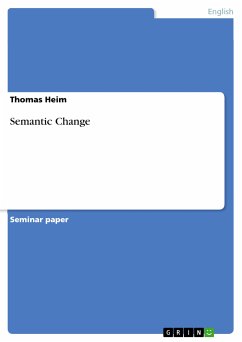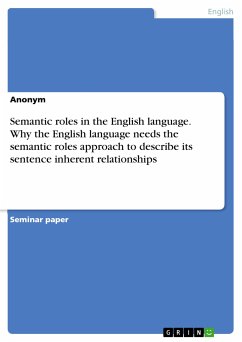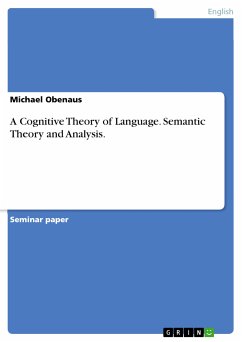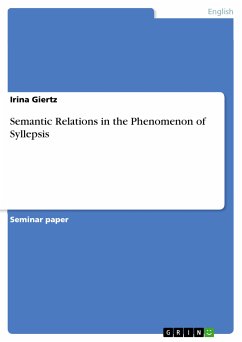
Semantic Change (eBook, PDF)

PAYBACK Punkte
0 °P sammeln!
Seminar paper from the year 2003 in the subject English Language and Literature Studies - Linguistics, grade: 1, LMU Munich (Institut für Englische Philologie), course: Hauptseminar, language: English, abstract: "Semantic change deals with change in meaning, understood to be a change in the concepts associated with a word [...]" (Campbell 1998: 255). To some of you, Campbell's definition may seem a bit simplistic. Some scholars, too (for example Blank whom we'll be hearing of later on), argue that it's not one meaning of word that changes, but with semantic change a new meaning is added to th...
Seminar paper from the year 2003 in the subject English Language and Literature Studies - Linguistics, grade: 1, LMU Munich (Institut für Englische Philologie), course: Hauptseminar, language: English, abstract: "Semantic change deals with change in meaning, understood to be a change in the concepts associated with a word [...]" (Campbell 1998: 255). To some of you, Campbell's definition may seem a bit simplistic. Some scholars, too (for example Blank whom we'll be hearing of later on), argue that it's not one meaning of word that changes, but with semantic change a new meaning is added to the already existing meaning or meanings of a word and then this new meaning is lexicalised, or one of the already lexicalised meanings is no longer used and becomes extinct. I think Campbell's definition can suffice as a basis for our little "immersion" into semantic change. And what is more important than a theoretically watertight definition is a "practical insight" into semantic change. So let's have quick look on what exactly changes when words change their meanings.
Dieser Download kann aus rechtlichen Gründen nur mit Rechnungsadresse in A, B, BG, CY, CZ, D, DK, EW, E, FIN, F, GR, HR, H, IRL, I, LT, L, LR, M, NL, PL, P, R, S, SLO, SK ausgeliefert werden.













